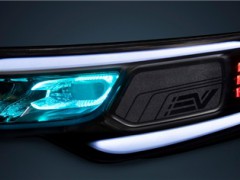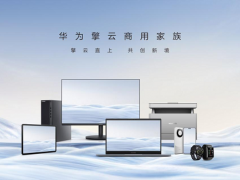據(jù)油價(jià)網(wǎng)7月6日報(bào)道,彭博社報(bào)道,歐盟可以利用其新成立的天然氣買家組織卡特爾購買大量的氫氣和其他關(guān)鍵材料。歐盟設(shè)定了一個(gè)目標(biāo),即整合足夠的需求,填滿其在歐盟境內(nèi)相當(dāng)于約135億立方米天然氣儲(chǔ)存設(shè)施;目前歐盟其天然氣儲(chǔ)備已經(jīng)超出預(yù)期,接近80%的儲(chǔ)備已滿。
歐盟委員會(huì)副主席告訴彭博社,“我們必須在關(guān)鍵原材料上進(jìn)行更多投資,以獲取我們所需的戰(zhàn)略供應(yīng),我們需要多樣化供應(yīng)商”。
受到近年來最嚴(yán)重的能源危機(jī)之一的沖擊,歐盟于2022年成立了一個(gè)天然氣買家組織卡特爾,并開始發(fā)布供應(yīng)招標(biāo)。據(jù)稱,歐盟內(nèi)約有50家天然氣供應(yīng)商和大型工業(yè)氣體消費(fèi)者立即表示有興趣參與該聯(lián)合購買行動(dòng)。整個(gè)努力的一個(gè)關(guān)鍵目標(biāo)是通過大規(guī)模購買來降低天然氣價(jià)格。
盡管天然氣價(jià)格比一年前低得多,但歐盟仍需要購買大量天然氣來重新填充儲(chǔ)備,這可能會(huì)推高價(jià)格。他表示,歐盟及其四個(gè)鄰國未來三年將需要240億立方米的天然氣來滿足需求。此外,與全球兩大經(jīng)濟(jì)體相比,歐洲一直在為天然氣支付相當(dāng)高的溢價(jià),如果該地區(qū)要在全球舞臺(tái)上保持競爭力,這種情況需要改變。“越來越重要的是,我們必須處理價(jià)格問題。與上述兩位相比,我們無法以如此巨大的價(jià)格差來支持我們的經(jīng)濟(jì)。”謝夫喬維奇告訴彭博社。
三年前,歐盟制定了其新的氫氣戰(zhàn)略,作為實(shí)現(xiàn)其所有行業(yè)在2050年實(shí)現(xiàn)碳中和的目標(biāo)的一部分。對于氫氣行業(yè)來說,這是一個(gè)巨大的勝利,歐盟計(jì)劃在2030年之前在其境內(nèi)建設(shè)至少40吉瓦的電解裝置,相當(dāng)于當(dāng)前全球容量250兆瓦的160倍。歐盟還計(jì)劃支持鄰近國家發(fā)展另外40吉瓦的綠色氫氣,這些國家可以向該地區(qū)出口。
天然氣買家聯(lián)盟的成功為歐盟在購買氫氣和其他能源轉(zhuǎn)型所需材料方面提供了一個(gè)藍(lán)圖。
胡耀東 譯自 油價(jià)網(wǎng)
原文如下:
EU Could Use Newly Launched Gas Cartel To Purchase Hydrogen
The European Union could use its newly launched gas cartel to purchase vast quantities of hydrogen and other critical materials, Bloomberg has reported. The bloc had set a goal of aggregating enough demand to fill 15% of its gas storage sites across the bloc, equivalent to around 13.5 billion cubic meters, and has managed to exceed expectations with its gas stores nearly 80% full.
“We have to invest much more in critical raw materials to have the strategic supplies we need. We need to diversify the suppliers,” Commission Vice President Maros Sefcovic has told Bloomberg.
Rocked by one of the worst energy crises in living memory, the European Union launched a gas buyers’ cartel in 2022 and started issuing tenders for supplies. According to Sefcovic, some 50 gas suppliers and large industrial gas consumers in the EU immediately expressed interest in being part of the bloc’s joint gas buying effort. A key objective of the whole endeavor is to keep gas prices low by buying in larger volumes.
Although natural gas prices are a lot lower than they were a year ago, the EU still needs to buy vast quantities of gas to refill its storage, with such a move likely to drive prices higher. Sefcovic said that the EU plus four neighboring countries will require 24 billion cubic meters of natural gas over the next three years to meet their needs. Further, Europe has been paying a considerable premium for its gas compared to the global top two economics , and this needs to change if the region is to remain competitive on the global stage, “What is increasingly important is that we have to deal with prices. We can’t power our economy at such a huge price differential compared with the above-mentioned economics ,” Sefcovic told Bloomberg.
Three years ago, the European Union set out its new hydrogen strategy as part of its goal to achieve carbon neutrality for all its industries by 2050. In a big win for the hydrogen sector, the EU has outlined an extremely ambitious target to build out at least 40 gigawatts of electrolyzers within its borders by 2030, or 160x the current global capacity of 250MW. The EU also plans to support the development of another 40 gigawatts of green hydrogen in nearby countries that can export to the region by the same date.
The success of the gas club provides a blueprint for the EU to use to purchase hydrogen and other materials it needs for the energy transition.
免責(zé)聲明:本網(wǎng)轉(zhuǎn)載自其它媒體的文章及圖片,目的在于弘揚(yáng)石化精神,傳遞更多石化信息,宣傳國家石化產(chǎn)業(yè)政策,展示國家石化產(chǎn)業(yè)形象,參與國際石化產(chǎn)業(yè)輿論競爭,提高國際石化產(chǎn)業(yè)話語權(quán),并不代表本網(wǎng)贊同其觀點(diǎn)和對其真實(shí)性負(fù)責(zé),在此我們謹(jǐn)向原作者和原媒體致以崇高敬意。如果您認(rèn)為本站文章及圖片侵犯了您的版權(quán),請與我們聯(lián)系,我們將第一時(shí)間刪除。







